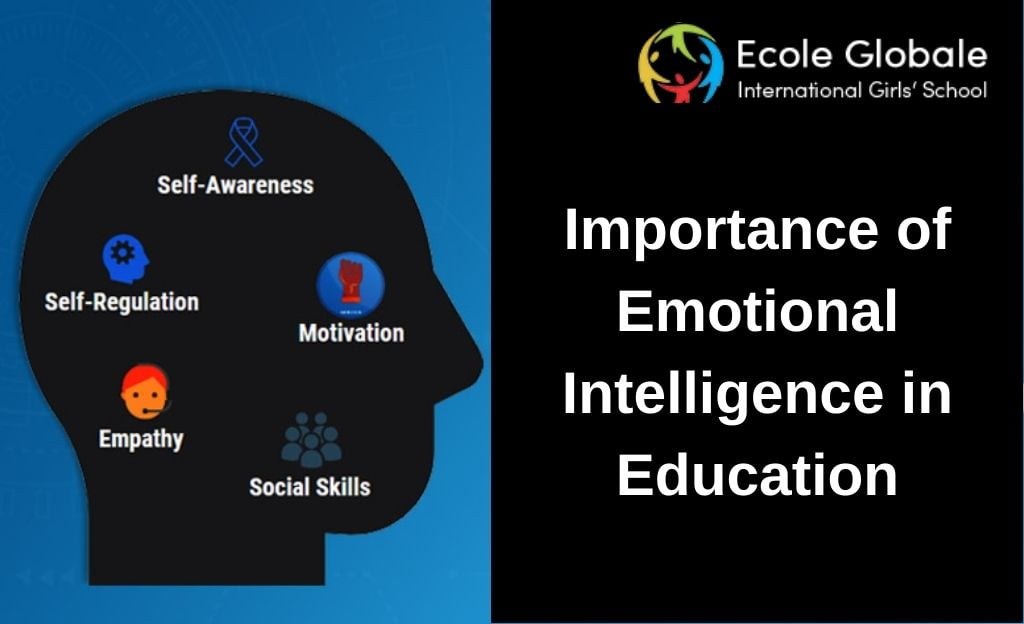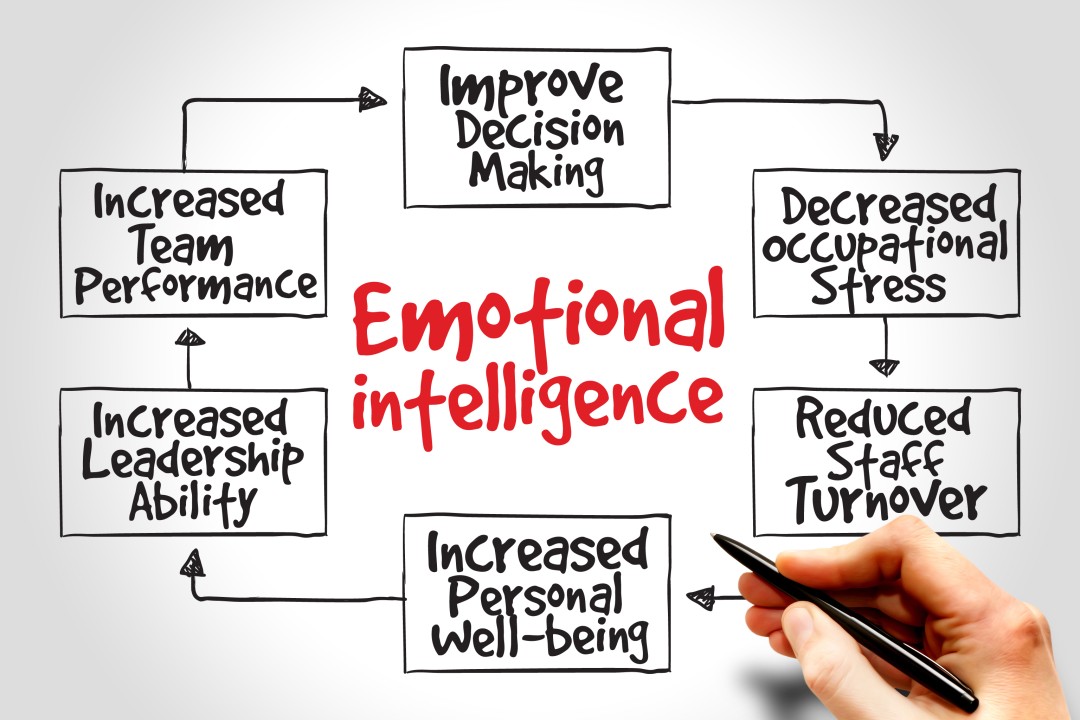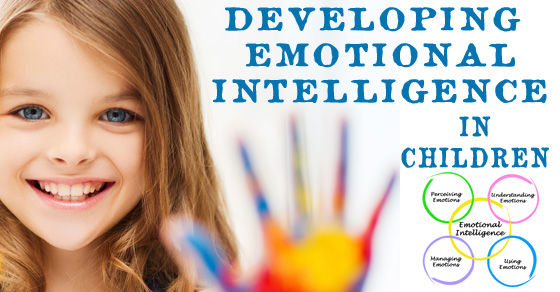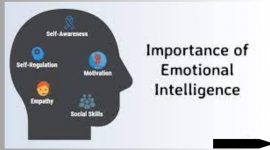Emotional intelligence is a term that has been around for years. Its definition remains controversial among psychologists. However, many educators feel it plays a key role in education. If students learn skills related to emotional intelligence(EI), they are more likely to succeed in school and life. There is a growing body of research that shows EI is more important in predicting academic results than cognitive ability.
Emotional intelligence is critical to improving your work performance. Recent research on the social and emotional development of children and teenagers has encouraged many schools to focus more on EQ than IQ. Here you will learn some aspects of EQ, why it is becoming an educational priority, and how people learn.
What is Emotional Intelligence
According to the Top Boarding schools in Dehradun, Emotional intelligence or EI is the ability to perceive, understand, and manage our emotions and those of others. It is “something” in each of us that is a bit intangible. It enables us to recognize and assess how we are feeling and thinking and to use this awareness to guide our thinking and actions.
It’s said that EI is a more important predictor of success than IQ because it helps us to understand, relate to, and connect with other people.
EI is increasingly seen as an important skill in education: it can help teachers be more effective in their role while also helping students develop into well-rounded individuals who can succeed inside and outside the classroom.
Emotional intelligence can be taught and improved over time
Emotional intelligence can be taught and improved over time. It is not a fixed personality trait but rather a set of skills that can be learned. It involves setting goals to increase positive emotions, such as joy and enthusiasm; acquiring new knowledge; increasing self-motivation; overcoming fears; developing self-confidence; improving relationships with others; managing anger and stress; enhancing physical health; and helping others when appropriate.
Teach students how their emotions affect their behavior by working through scenarios with them using role-playing activities or simulations.
How can we help children develop emotional intelligence?
- Identify your emotions
- Perceiving emotion – observing emotion in oneself or others; recognizing what emotion(s) people are experiencing in any given situation; distinguishing between different types of emotions; identifying how someone else feels about something based on their behavior.
- Describe your emotions
- Label your emotions
- Reflect on your emotions
- Express your emotions
Self-awareness is the capacity to accurately perceive your feelings and emotions and how they may motivate your thoughts and behavior.
Self-regulation is the ability to control disruptive impulses and delay gratification to achieve long-term goals. Children need time to learn how they respond emotionally in different situations – this can be supported by teachers encouraging them to reflect on their behavior and identify strategies that work better than others.
Emotional self-awareness is the ability to understand which emotions you are experiencing at any given time, which may aid in regulating your behavior appropriately.
Students with higher emotional intelligence tend to have better academic performance
EI has been linked with success in all kinds of areas: academic achievement, employee satisfaction, leadership skills, salesmanship, etc. Therefore it may be worth developing if you want a career boost or more success in life!
Emotional Intelligence is important because it allows you to understand yourself and others better. You may find that your emotions are interfering with your ability to function well at work, school, or in your relationships. You may also find that others have trouble understanding why you react as you do to certain situations. Emotional Intelligence helps us understand ourselves so we can understand others better and improve our relationships with them.
Emotional intelligence is associated with better social skills
It involves the ability to understand and manage emotions and relationships. Emotional intelligence helps people cope with stress, communicate, empathize with others effectively, overcome challenges, and make positive decisions.
Social skills include
Interpersonal communication skills
Conflict resolution skills
Friendship development
Children with high levels of EI tend to have fewer behavior problems at school and are more likely to seek help from adults when needed. The importance of emotional intelligence in education cannot be overstated because it plays an important role in helping students succeed academically and socially throughout their lives.
Social awareness is understanding others’ emotions and taking them into account when interacting with them.
Benefits of teaching Emotional Intelligence
Motivating Oneself even when stressed
Stress can be positive and negative; for example, it can help you push yourself harder when you need to perform at your best. But it can also lead to burnout if not careful. People with good emotional intelligence are better able to deal with negative stressors because they know how to push themselves without becoming overwhelmed. They don’t let things get out of hand and don’t give up easily either.
Children with strong self-regulation skills can motivate themselves without relying on external rewards such as grades or praise from teachers or parents.
Better decision-making
EI helps us make better decisions by taking into account all the aspects involved, including the emotional implications. It is especially helpful when we have to make decisions about other people or groups for whom we have no direct responsibility.
Emotionally intelligent people tend not to make rash decisions because they want the best for everyone involved in any situation or conflict — including themselves! It means that when they do make decisions, they are usually considered thoughtful choices.
Empathy
Empathy is the ability to understand and share the feelings of another. It is one of the most important characteristics of emotional intelligence. Empathy allows you to understand how others are feeling, but it also allows them to understand you.
Empathy is important because it helps us to relate better to others, which makes us more likable, easier to work with, and more successful in our relationships. It lets us feel more confident about ourselves and our abilities because we know that others appreciate us for who we are.
The more experience you have with people in different situations will help you build your understanding of how they feel about things and what they expect from their relationships with others.
Improved performance
People who are good at managing their emotions tend to perform better in any job or education because they are less stressed out and find it easier to concentrate on tasks without worrying about other factors like social interactions or personal relationships.
They also tend to have better relationships at work which makes them happier and more satisfied with their jobs.
Maintaining Relationships
EI helps us develop better relationships with others because we can recognize their emotions and respond appropriately. We can communicate more effectively with others as well.
Self-awareness
It refers to knowing what you feel and why you feel it. To be able to understand your emotions enables you to have an understanding of why you behave in certain ways toward others or yourself.
In today’s world, we are surrounded by technology that distracts us from our work and play. We need to be mindful of how we spend our time so that we can be productive and happy.
Emotionally intelligent students are more likely than others to
- Take responsibility for their actions.
- Make good choices about friends, activities, tasks, etc. that will help them achieve their goals
- Handle stress well when things do not go as planned
- Understand how they feel about themselves and others based on words used with friends or family members
Conclusion
Educators cannot teach in a bubble where their emotions do not affect their students. Teachers and parents can be good examples for children. They can set an example of how to manage their emotions healthily. With more awareness, you can make better decisions and be more effective.
For any queries related to parenting, schooling, or any student-related tips, click here to check out our latest blogs.









